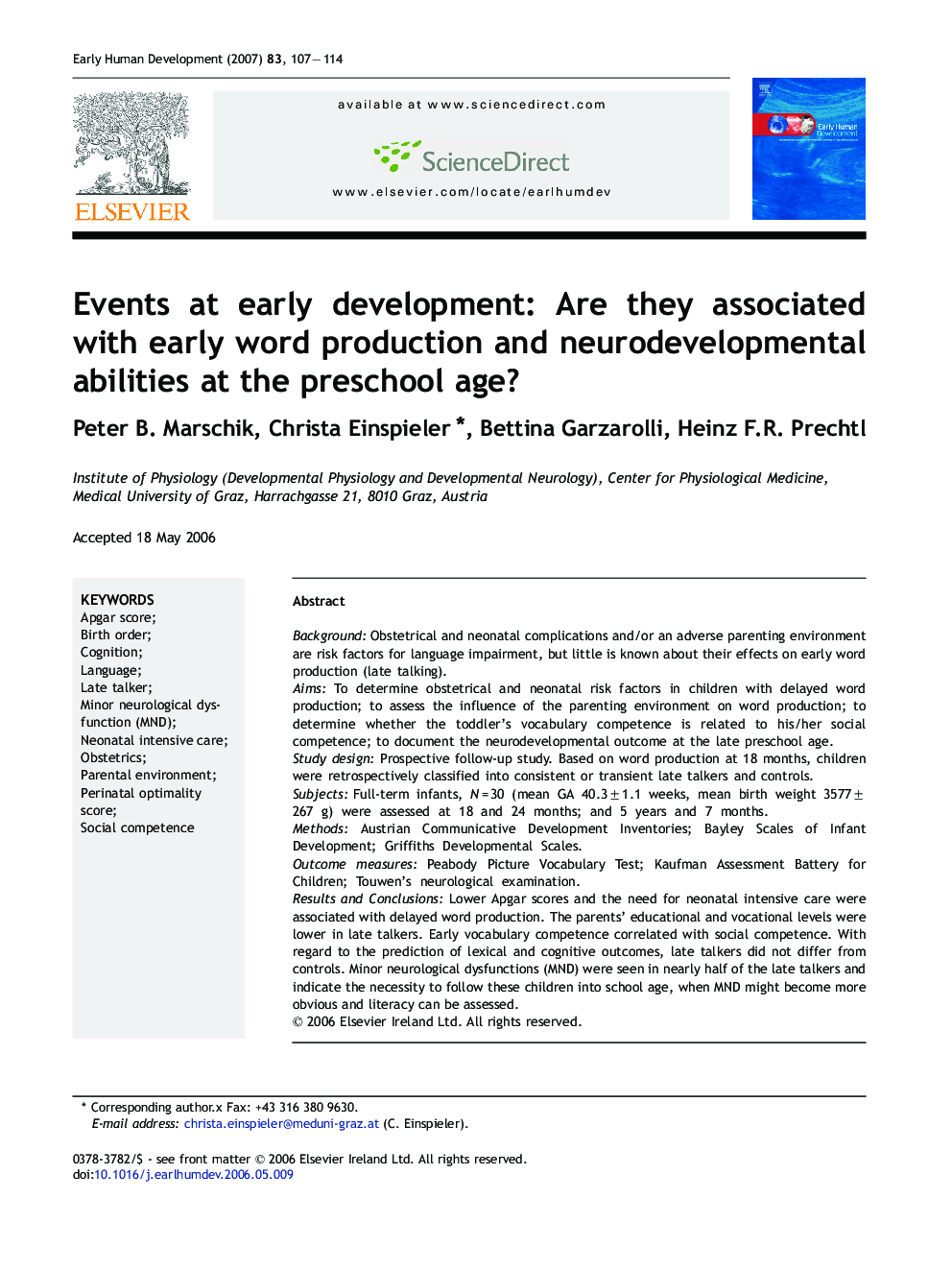| Article ID | Journal | Published Year | Pages | File Type |
|---|---|---|---|---|
| 3917927 | Early Human Development | 2007 | 8 Pages |
BackgroundObstetrical and neonatal complications and/or an adverse parenting environment are risk factors for language impairment, but little is known about their effects on early word production (late talking).AimsTo determine obstetrical and neonatal risk factors in children with delayed word production; to assess the influence of the parenting environment on word production; to determine whether the toddler's vocabulary competence is related to his/her social competence; to document the neurodevelopmental outcome at the late preschool age.Study designProspective follow-up study. Based on word production at 18 months, children were retrospectively classified into consistent or transient late talkers and controls.SubjectsFull-term infants, N = 30 (mean GA 40.3 ± 1.1 weeks, mean birth weight 3577 ± 267 g) were assessed at 18 and 24 months; and 5 years and 7 months.MethodsAustrian Communicative Development Inventories; Bayley Scales of Infant Development; Griffiths Developmental Scales.Outcome measuresPeabody Picture Vocabulary Test; Kaufman Assessment Battery for Children; Touwen's neurological examination.Results and ConclusionsLower Apgar scores and the need for neonatal intensive care were associated with delayed word production. The parents' educational and vocational levels were lower in late talkers. Early vocabulary competence correlated with social competence. With regard to the prediction of lexical and cognitive outcomes, late talkers did not differ from controls. Minor neurological dysfunctions (MND) were seen in nearly half of the late talkers and indicate the necessity to follow these children into school age, when MND might become more obvious and literacy can be assessed.
